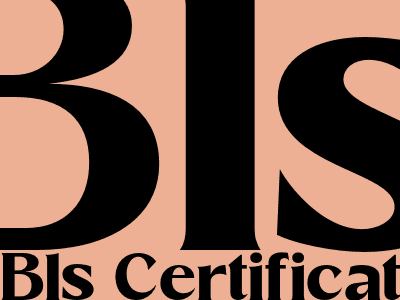
BLS Certification: A Comprehensive Guide
BLS certification, also known as Basic Life Support certification, is an essential life-saving skill that can help you respond effectively to cardiac and respiratory emergencies. This certification is commonly required for healthcare professionals, educators, and individuals working in industries with high-risk environments. In this comprehensive guide, we will delve into everything you need to know about BLS certification, from its importance to the process of obtaining and maintaining it.
Why is BLS Certification Important?
BLS certification equips you with the knowledge and skills to perform CPR (cardiopulmonary resuscitation) and use an automated external defibrillator (AED) in emergency situations. These skills can significantly increase the chances of survival for victims of sudden cardiac arrest or choking. According to the American Heart Association, immediate CPR and defibrillation can double or even triple the likelihood of survival for cardiac arrest victims.
Who Needs BLS Certification?
BLS certification is highly recommended for various individuals, including healthcare professionals (doctors, nurses, paramedics, etc.), teachers, lifeguards, police officers, firefighters, and anyone working in environments where there is a potential for medical emergencies. Employers in many industries may also require BLS certification as a condition of employment.
How to Obtain BLS Certification
To obtain BLS certification, you must complete a certified training course that meets the guidelines established by the American Heart Association (AHA) or the American Red Cross. These courses typically cover the following topics:
- Recognizing signs and symptoms of cardiac arrest and choking
- Performing CPR (adult, child, and infant)
- Using an AED
- Preventing the spread of infection
After completing the training course, you will be required to pass a written and practical exam. If you successfully pass the exam, you will receive a BLS certification card that is valid for two years.
Maintaining BLS Certification
To maintain your BLS certification, you must renew it every two years. This can be done by completing a recertification course, which is typically shorter and less comprehensive than the initial certification course. Recertification courses cover updates to CPR and AED guidelines and provide an opportunity to refresh your skills.
Benefits of BLS Certification
Obtaining BLS certification offers several benefits, including:
- Improved job prospects: BLS certification can enhance your employment opportunities in various fields.
- Increased confidence: Being certified in BLS gives you the confidence to react effectively to medical emergencies.
- Peace of mind: Knowing that you possess life-saving skills can provide peace of mind, especially if you work in a high-risk environment or have loved ones who may need assistance.
Additional Resources
For more information on BLS certification, please refer to the following resources:
Conclusion
BLS certification is a valuable skill that can empower you to save lives. Whether you are a healthcare professional, teacher, or someone who wants to be prepared for emergencies, obtaining and maintaining BLS certification is highly recommended. By investing in this certification, you can make a difference in the lives of others and give yourself the confidence to respond effectively to life-threatening situations.